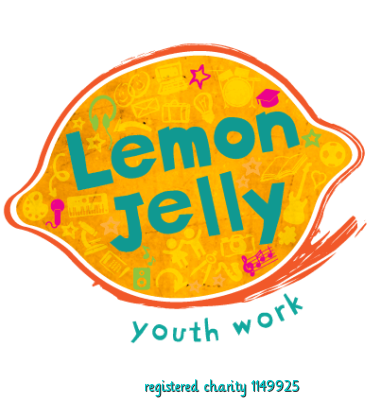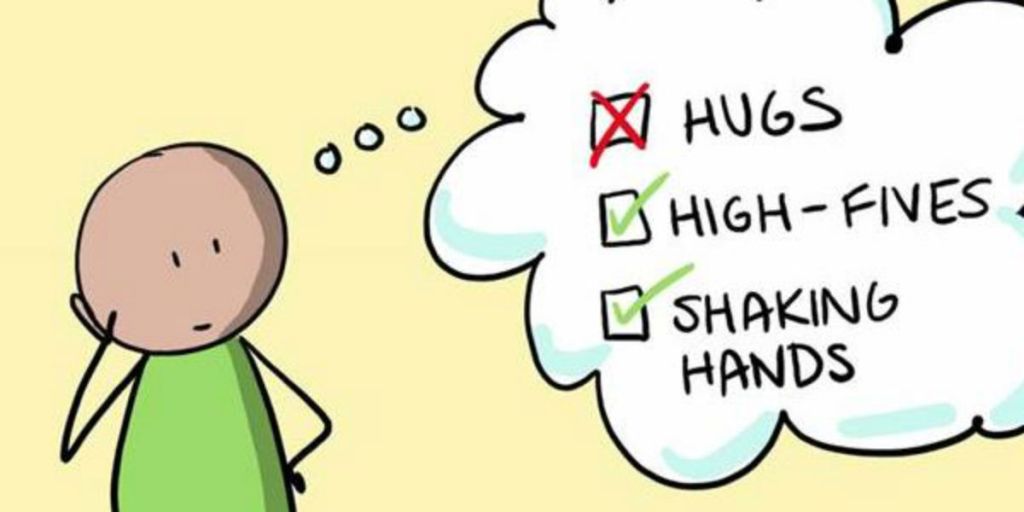Consent is like a cup of tea is a now fairly well-known video about, well, how consent is like a cup of tea. If you haven't seen it then go look below... I recently read an article challenging it which was interesting, but that's for another day.
Consent for kids is made in the same style and is a brilliant introduction to consent as a concept. When teaching consent and even talking about it with adults, I'm immediately aware of what a slippery concept it is, particularly I believe, for Brits and other cultures where politeness, putting-up, and general stoicism are valued and taught from birth.
Consent for kids feels particularly 'American', individualistic, possibly even bratty... and yet every time I watch it, I want more and more for children to have that understanding of themselves, the clarity about their personal boundaries, and the confidence to speak it politely and definitely that the video encourages them towards.
I am, after all, that parent. I did make my children talk to people they didn't want to. I did demand that they look everyone in the eye when they were spoken to. I did make them hug everyone when we said goodbye. I do feel pride when they do those things automatically now and am told what polite kids I have. But. Last week the 9 year old told me that although he didn't like being held down and kissed by girls in his class, it was OK "Because consent isn't really a thing for boys is it? It's really for girls and gay people isn't it? Boys just get on with it, don't they?"
Ouch. After some great conversations in the past about consent and what it means, after showing him this video a while back, after everything, he can still make that kind of assumption about what it means to be male. Implicit assumptions about boys being perpetrators and girls and gay people being those who consent or don't. That boys 'get on with' whatever is on offer regardless of how they feel about it. The same way they had to get on with hugging people they barely knew goodbye.
Bugger.
This stuff is deep within us. And needs unpicking.
So. Consent for kids is a great place for all of us to start. To connect us into the foundation of it without its sexual packaging. To start at the beginning and re-construct its meaning. Adults and kids alike.
Consent for kids is made in the same style and is a brilliant introduction to consent as a concept. When teaching consent and even talking about it with adults, I'm immediately aware of what a slippery concept it is, particularly I believe, for Brits and other cultures where politeness, putting-up, and general stoicism are valued and taught from birth.
Consent for kids feels particularly 'American', individualistic, possibly even bratty... and yet every time I watch it, I want more and more for children to have that understanding of themselves, the clarity about their personal boundaries, and the confidence to speak it politely and definitely that the video encourages them towards.
I am, after all, that parent. I did make my children talk to people they didn't want to. I did demand that they look everyone in the eye when they were spoken to. I did make them hug everyone when we said goodbye. I do feel pride when they do those things automatically now and am told what polite kids I have. But. Last week the 9 year old told me that although he didn't like being held down and kissed by girls in his class, it was OK "Because consent isn't really a thing for boys is it? It's really for girls and gay people isn't it? Boys just get on with it, don't they?"
Ouch. After some great conversations in the past about consent and what it means, after showing him this video a while back, after everything, he can still make that kind of assumption about what it means to be male. Implicit assumptions about boys being perpetrators and girls and gay people being those who consent or don't. That boys 'get on with' whatever is on offer regardless of how they feel about it. The same way they had to get on with hugging people they barely knew goodbye.
Bugger.
This stuff is deep within us. And needs unpicking.
So. Consent for kids is a great place for all of us to start. To connect us into the foundation of it without its sexual packaging. To start at the beginning and re-construct its meaning. Adults and kids alike.


 RSS Feed
RSS Feed
